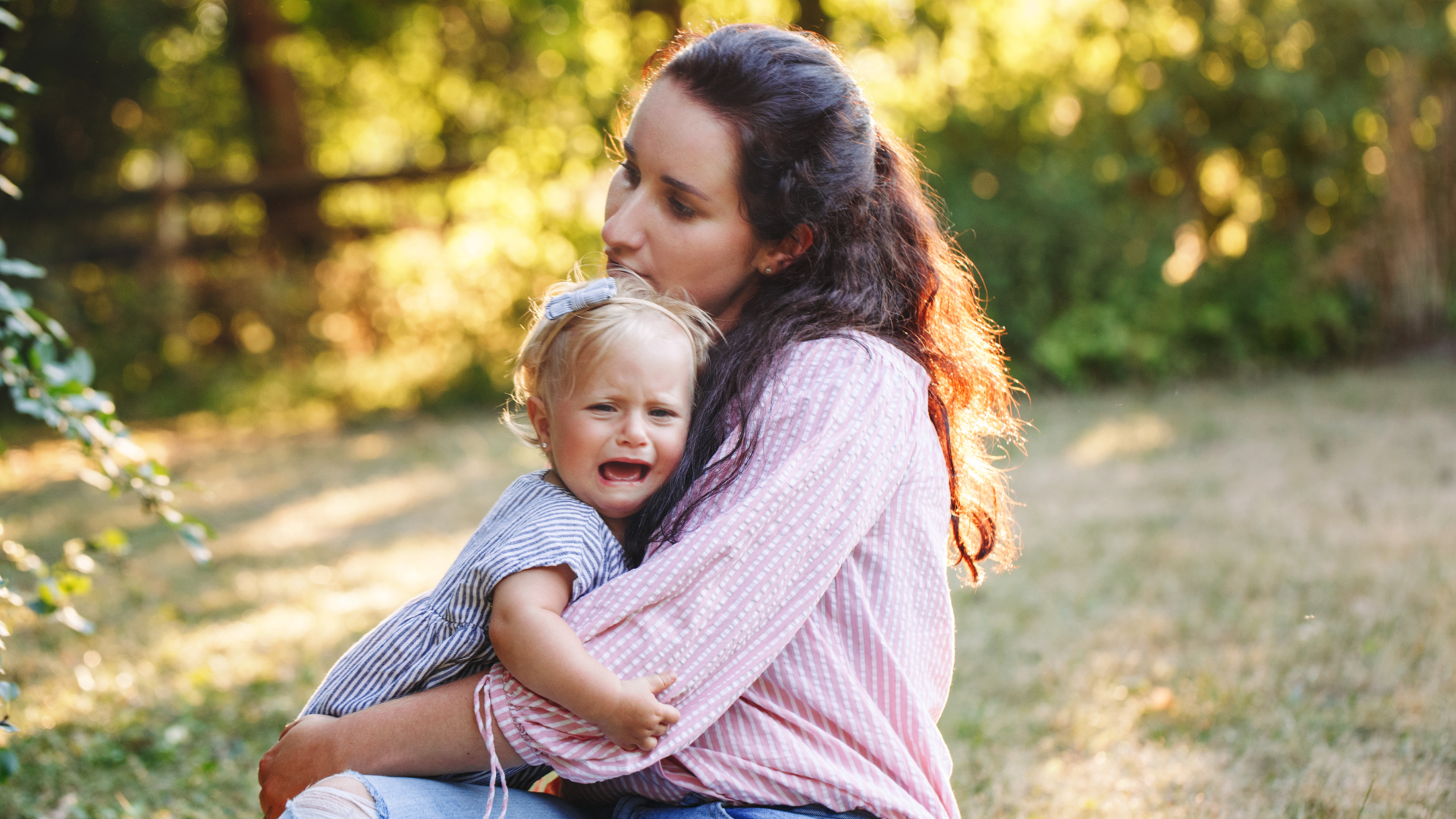separation anxiety in babies and toddlers
Separation anxiety in babies occurs when the child can't see you and are worried about if and when you'll return. What this means is that when you leave, your baby does not know that you are coming back- or when. Separation anxiety occurs in the first year because between about 6-12 months, babies begin to learn object permanence, or the understanding that people and objects continue to exist even when out of sight, but they have poor sense of time.
Separation anxiety in babies usually happens between 6-12 months. Separation anxiety for babies can start as early as 4-5 months, is most common between 10-18 months and usually eases up by age 3, and can be exacerbated during times of change or stress. Separation anxiety at bedtime is also common. Sleep represents a massive separation for babies, which sets off the "alarm bell" in their brain. This is why so many children struggle at bedtime in their own rooms- you're not alone!
Separation anxiety can cause disruptions in sleep as well as your day-to-day routine, and you might notice:
Crying when you leave the room
Clinging or crying, especially in new situations
Awakening and crying at night after previously sleeping through the night
Refusal to go to sleep without parent nearby
While separation anxiety is a very normal and natural phase of development, there are some things we can do to help babies who are going through it:
Playing games like peek-a-boo, hide & seek, hiding items under blankets, etc., can help your child understand that things and people still exist even when out of sight
Let your baby know when you're leaving the room, where you're going, etc. They understand a lot more than you'd think!
When you do leave the room, say, to go to the bathroom, you can call to them or continue talking with them from the next room
Practice VERY short partings, like going out into the hallway and coming back immediately. You can increase the duration you're gone over time (obviously with baby being supervised by someone else)
Before you part with baby to go to work etc., spend lots of 1:1 connecting time with limited distractions
When you leave, try to never sneak away- always say a quick & confident goodbye!
Utilize a lovey or another attachment object (only in the sleep space after 12 months though!)
Even once toddlers have mastered object permanence through activities like hiding toys, because they do not yet have an understanding of time, they still do not know when their caregiver will come back if they’ve left. This causes them to become very upset. As toddlers get older they also gain autonomy. While this is exciting, it can also be overwhelming and scary. This newfound independence mixed with an underdeveloped brain can also contribute to separation anxiety, as your child wants you close by to act as their "secure base" from which to explore.
To help toddlers and older children who are experiencing difficulty separating from you at bedtime or overnight, try the following tips to offer connection and proximity:
Practice leaving their room for very short periods of time and then always coming right back
Leaving them with a photo of you, a special item or t-shirt that smells like you to sleep with
Talking about what you’ll do together in the morning, meeting in your dreams to do something special, etc. to help “bridge” the time you’ll be apart
Sing a special song or adopt a family mantra to use at bedtime
Cuddle or lay with your child before they go to bed before they ask for it (this helps them rest in their attachment to you rather than feeling that they have to frantically seek it out)
Tell them stories from when you were a child and had a hard time being away from your own parents and how you felt, what you did etc.
Try to support this emotion. Remember that you are your child's whole world, and it can be distressing for them to be left without you. Parents often see separation anxiety pop up around things like putting their baby to sleep in their own room or in their crib. This is common and will likely pass. Remember that while solitary sleep is possible, and you can get there, it goes AGAINST the biological norm, which is for babies and young children to sleep close to us, so it can take some time for some.






